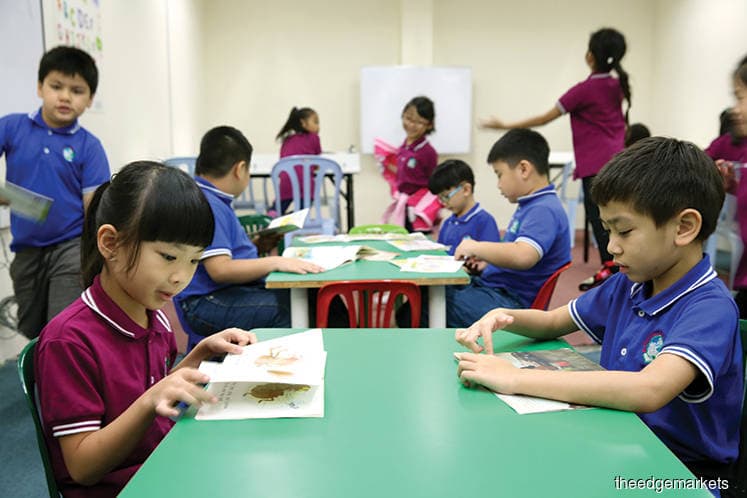
This article first appeared in The Edge Financial Daily on May 30, 2018
KUALA LUMPUR: Private learning centres, operating like schools and calling themselves homeschooling centres, are taking a leap into the international school sector to overcome a legal hurdle. This is in response to the government’s stance that it would take action against such centres with only a tuition centre licence but operate like schools.
In January, a local English-language daily quoted the education ministry (MoE) as saying it would take action against such centres. “We are looking seriously at their existence and the issues involving these centres as it is against the provision of compulsory education set out in the Education Act. We will be taking appropriate action in accordance with the act against illegal private educational institutions,” the MoE was quoted as saying.
In actuality, homeschooling is when children are educated informally at home, usually with a parent or parents as the primary educator. In many developed countries, homeschooling, gaining ground according to proponents, is a legal alternative to public and private schools.
In Malaysia, private learning centres have proliferated in the past decade, fashioning themselves as homeschooling centres where children are educated in a group setting, much like they would be in a school — minus the uniforms – while following an individualised syllabus, with more extracurricular activities thrown in.
These centres often follow international curricula such as the International General Certificate of Secondary Education (IGCSE) and Cambridge primary education.
“There are easily more than 100 [homeschooling] centres in the Klang Valley alone,” said Eduseeds Sdn Bhd founding chairman Kevin Gan Muk Chun in a recent interview with The Edge Financial Daily. Eduseeds is a home-grown virtual curriculum provider for private learning or homeschooling centres.
Gan, managing five such homeschooling centres in the Klang Valley, is among a growing number of educators benefiting from parents clamouring for cheaper and more effective educational alternatives to what they perceive as a lacking national school system.
A centre says enrolment has doubled every year for the past two years. “The student volume increased drastically for the past two years, where we recorded a growth of more than 100%. Moving forward, we expect it to exceed 100% [each year],” STARS International Academy founder and principal Sasikumar said.
Due to rising demand, and to regulate such learning centres, Sasikumar urges the government to find a way to legalise homeschooling centres, saying the provision of education benefits society. “There should be a party that keeps us accountable. The government needs to show their involvement to observe and regulate homeschooling centres’ quality,” Sasikumar said.
Interestingly, certain religious-based homeschooling centres are considered legal. One such religious-based operator in Petaling Jaya said, “Our legality is derived from Article 12, Section 2 of the Federal Constitution and Article 2, Part 1 of Act 258, Trustees (Incorporation) Act 1952.”
“The Federal Constitution says every religious group has the right to establish institutions for the education of children in its own religion. In addition, our centre also uses the Trustees (Incorporation) Act 1952 as we are part of a more established organisation,” another source close to the matter told The Edge Financial Daily. The MoE could not be reached for comments at the time of writing.
Investors crowding in?
Industry players report that, on average, homeschooling centres enjoy a profit margin of between 20% and 40%. Across the Klang Valley, homeschooling centres’ monthly fees range from RM700 to RM2,500 per month.
“If my centre can make a 35% profit with a [monthly] fee of RM1,300 [per student], how much more profit do you think a RM2,000 fee could command?” a homeschooling centre operator said.
As handsome as the profit margin is at present, homeschooling centres transforming into international schools requires deep pockets. On average, it takes about RM8 million to establish an international school, according to an industry source.
Interestingly, a number of homeschooling centres looking to join international schools’ league said funding is not an issue.
“We have five investors looking to invest at least RM10 million to turn us into an international school,” said another homeschooling centre operator in the Klang Valley.
A brief check by The Edge Financial Daily on homeschooling centres in the Klang Valley found eight of them are looking to upgrade into international schools.